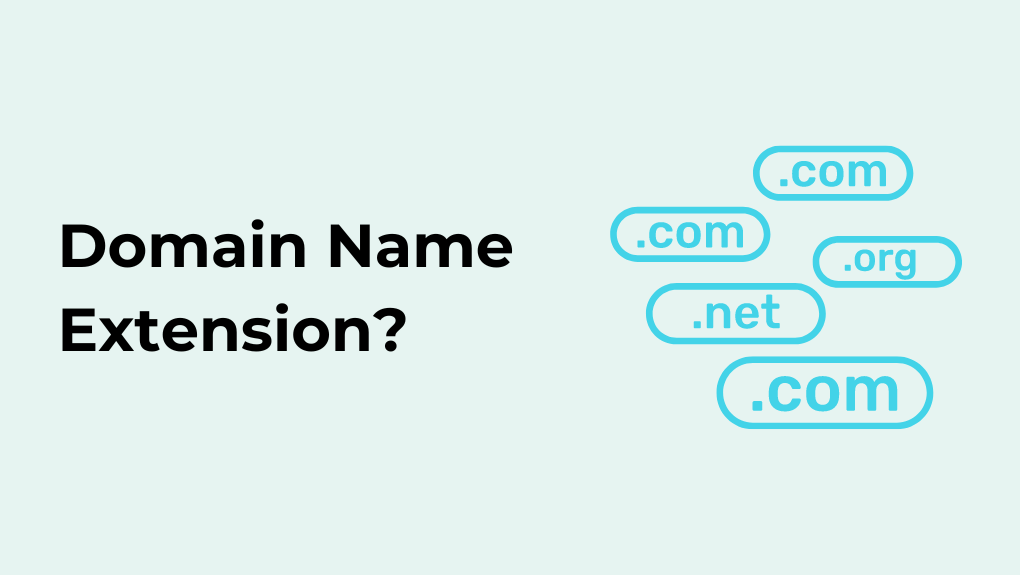How Domain Name Extensions Impact SEO?
Nowadays, if businesses, bloggers, and professionals want to be successful, they need to secure a strong place online. Choosing a domain name is among the initial things you should do in this process.
A domain name functions as the web address for your site that people can use to reach you or your business on the internet. There have been 6958 new domain names in 2024 so far.
So, having a unique domain name is significant because it gives identity and uniqueness to every website or online presence, allowing them to be recognized by their own specific name on the World Wide Web.
People mostly focus on finding and securing affordable domain names online, without paying much attention to the extension. While the name itself is extremely important, the extension or top-level domain (TLD) that comes after it, such as .com, .org, or .net, is also crucial.
Knowing how these domain name extensions affect search engine optimization (SEO) can guide you in making better choices while establishing your website.
Understanding Domain Name Extensions

Top-level domain name extensions, also known as TLDs, are the endings that come after a main domain name, such as .com, .org, .net, etc. When they were first created, these kinds of extensions were designed for particular roles.
For example, .com was for business-related websites like companies and such, .org was made specifically for organizations, and .net was mainly used by network services. Yet, with the internet's expansion, the number of TLDs has also grown. Currently, there are hundreds of options like .blog, .shop, and .tech, available today.
Deciding which domain name extension to use is not only about likes or dislikes. It can influence the credibility, visibility, and overall SEO performance of your site. Search engines such as Google take into account many things when they rank websites and the TLD is one big factor in these evaluations. Domain names are not that expensive. You can register domains from a trusted domain name service.
Geographic TLDs and Local SEO
Geographic TLDs, like .us, .uk, .ca, or .au, are made to show that a website targets people in certain countries. When you use such TLD, it might help with local SEO as it indicates to search engines that your content is about users who live in this region.
For instance, if you have a business functioning in Canada, employing the .ca TLD could assist your website to be higher positioned in Canadian search results. This localized tactic might help you enhance the visibility of your site within local viewership, drive more traffic from nearby regions, and improve overall SEO planning.
Oftentimes, search engines give preference to content that is local when showing results, which makes having top-level domains linked with particular geographical locations extremely useful for marketing within regions.
Niche TLDs and Industry Relevance
Specialized TLDs, like .tech, .blog, .shop, and .photography, bring in a new way to show your industry or goal with the domain name itself. This type of TLD can give a clear hint about what kind of content your site has, which makes it simpler for users and search engines to comprehend your main subject.
For example, if a technology company uses a .tech TLD, it can give clear information about its industry. This might help it to be more relevant in tech-related searches.
In the same way, if someone is looking for blog content and sees a website with .blog TLD, this domain could draw their attention because it matches what they are searching for specifically.
While niche TLDs cannot promise better search rankings alone, they can improve your website's branding and user experience. This indirectly supports SEO by linking your domain with the purpose of your content.
Trust and Credibility: The Role of TLDs
How much users trust and consider certain TLDs credible is a factor that can affect user behavior; in turn, this affects SEO. For example, TLDs such as .com, .org, and .edu are often seen by people to be more trustworthy because they have existed for a long time and are frequently used in sites with good reputations.
If the domain name ends with these TLDs, there is a higher chance that users will click on it. When CTR (click-through rate) improves for results featuring such domain names, it provides positive signals to search engines.
On the other hand, certain TLDs that are new or not commonly used might result in users seeing them as strange or difficult to understand. They could have doubts about these extensions and this could mean lower CTR and negative effects on your local SEO.
Consider your target market's view of a TLD; it can affect their trust in visiting and interacting with your website.
Future Trends and Considerations
The domain name extensions stage keeps changing, as new TLDs get added often. It is very important to keep up with these changes to make wise choices about your domain plan.
For example, with the increasing acceptance of non-traditional TLDs, users and search engines are becoming more accustomed to diverse extensions.
Furthermore, keeping track of how search engines modify their algorithms to fit new TLDs is crucial. Although the existing algorithms are made not to favor any specific TLD, changes in the future might improve how various extensions are handled.
Hence, it's important to remain adaptable and ready to incorporate new TLDs that match your branding and SEO strategy.
Bottom Line
The type of domain name extension you select affects your website's SEO. Even though traditional TLDs such as .com provide perceived trustworthiness and slight SEO advantages, geographic or niche-based TLDs may boost SEO and industry relevance.
Trust and user perception are also crucial in how well a particular TLD works for your website. By knowing these elements and keeping yourself updated with new developments, you can fine-tune your domain plan to help you achieve your SEO objectives and enhance your overall online presence.






